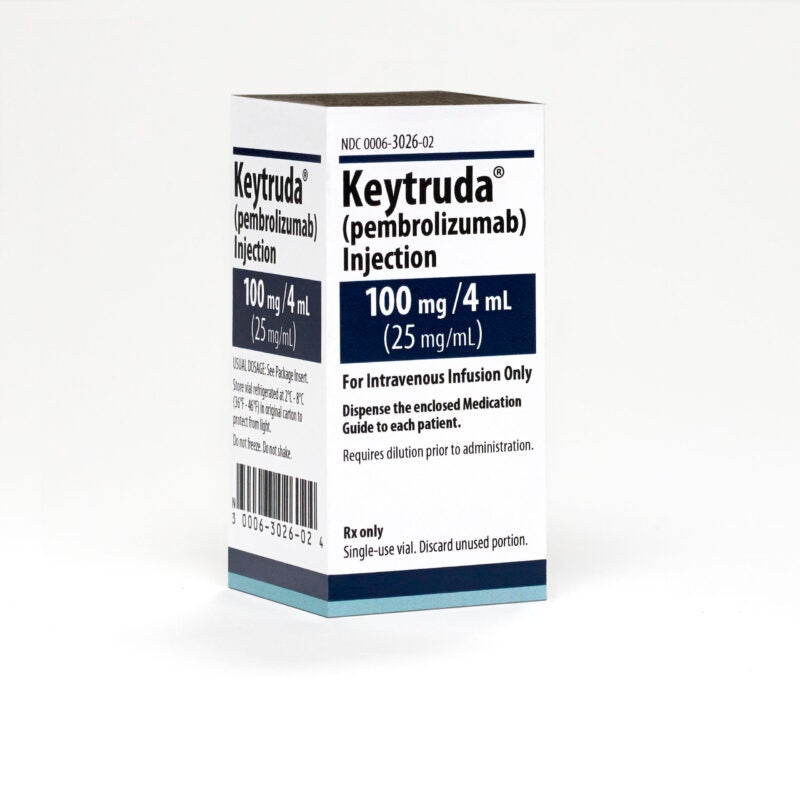
Merck’s (MSD) Keytruda (pembrolizumab) has received the European Commission (EC) approval as monotherapy for the adjuvant treatment in adult patients with renal cell carcinoma (RCC), the most common kidney cancer type.
The anti-programmed death receptor-1 (PD-1) therapy is indicated for patients who are at greater risk of recurrence after nephrectomy, or nephrectomy and metastatic lesion resection.

Discover B2B Marketing That Performs
Combine business intelligence and editorial excellence to reach engaged professionals across 36 leading media platforms.
With the latest development, Keytruda became the first immunotherapy to obtain approval in the region in the adjuvant setting for RCC patients.
The EC approval is based on findings from the double-blind, randomised, multicentre, placebo-controlled Phase III KEYNOTE-564 clinical trial that had 994 individuals with RCC.
Data showed that Keytruda offered a statistically significant improvement in disease-free survival (DFS).
It also lowered the disease recurrence or mortality risk by 32% following a median follow-up of 23.9 months versus placebo, in subjects at high recurrence risk.

US Tariffs are shifting - will you react or anticipate?
Don’t let policy changes catch you off guard. Stay proactive with real-time data and expert analysis.
By GlobalDataWith the approval, Keytruda can now be marketed as monotherapy in all 27 EU member states, as well as Norway, Iceland, Lichtenstein and Northern Ireland.
Merck Research Laboratories clinical research vice-president Dr Scot Ebbinghaus said: “Keytruda is the first adjuvant therapy approved for certain patients with renal cell carcinoma in Europe, providing the option of immunotherapy earlier in the course of their treatment.
“This approval demonstrates our progress in bringing Keytruda to patients with earlier stages of cancer, with the goal of helping more patients around the globe prevent disease recurrence.”
The company currently has a wide clinical development programme that analyses Keytruda as a single agent or along with several other investigational and approved therapies across different RCC settings and stages.
A humanised monoclonal antibody, Keytruda hinders the interaction between PD-1 and its ligands, PD-L1 and PD-L2, to trigger T lymphocytes which could impact both tumour and healthy cells.
Furthermore, Keytruda acts by boosting the immune system’s ability to identify and destroy tumour cells.
In October last year, the EC approved Keytruda in combination with chemotherapy to treat breast cancer patients.




